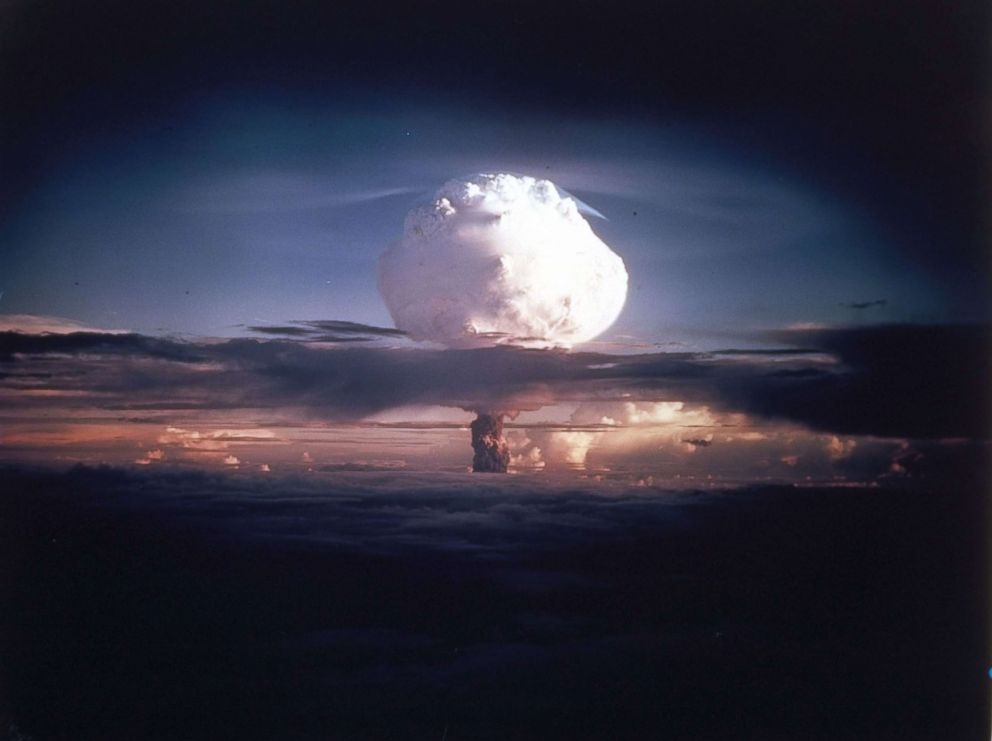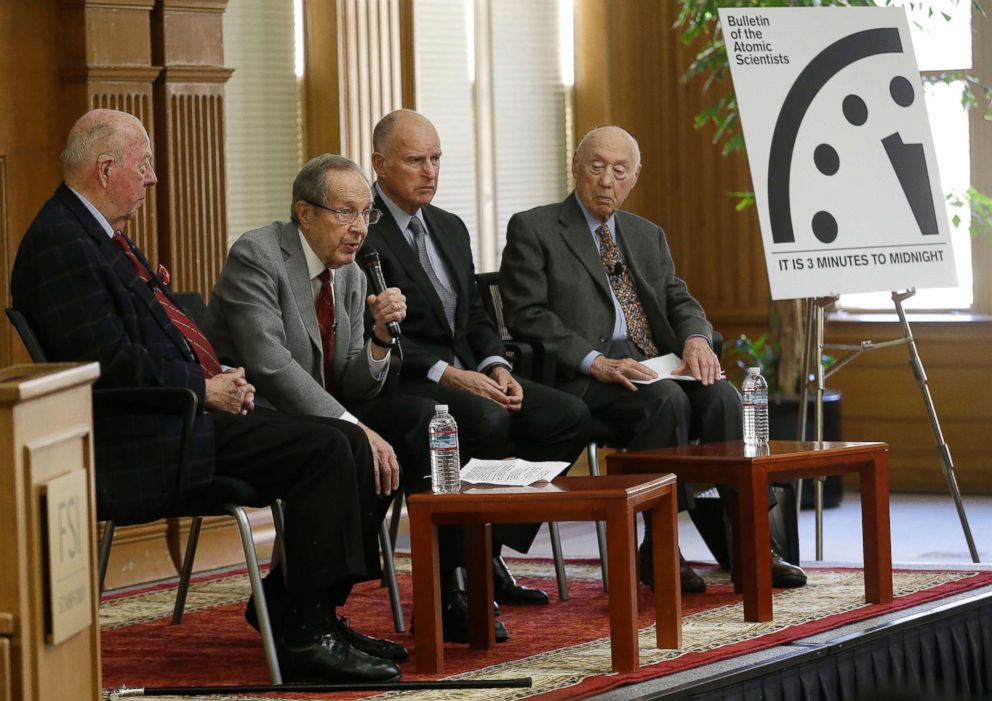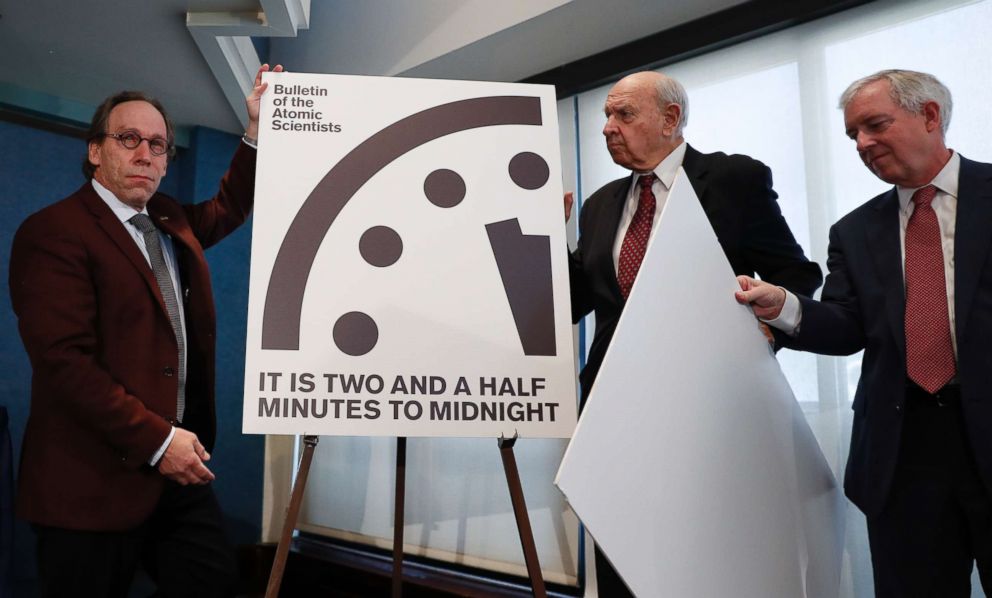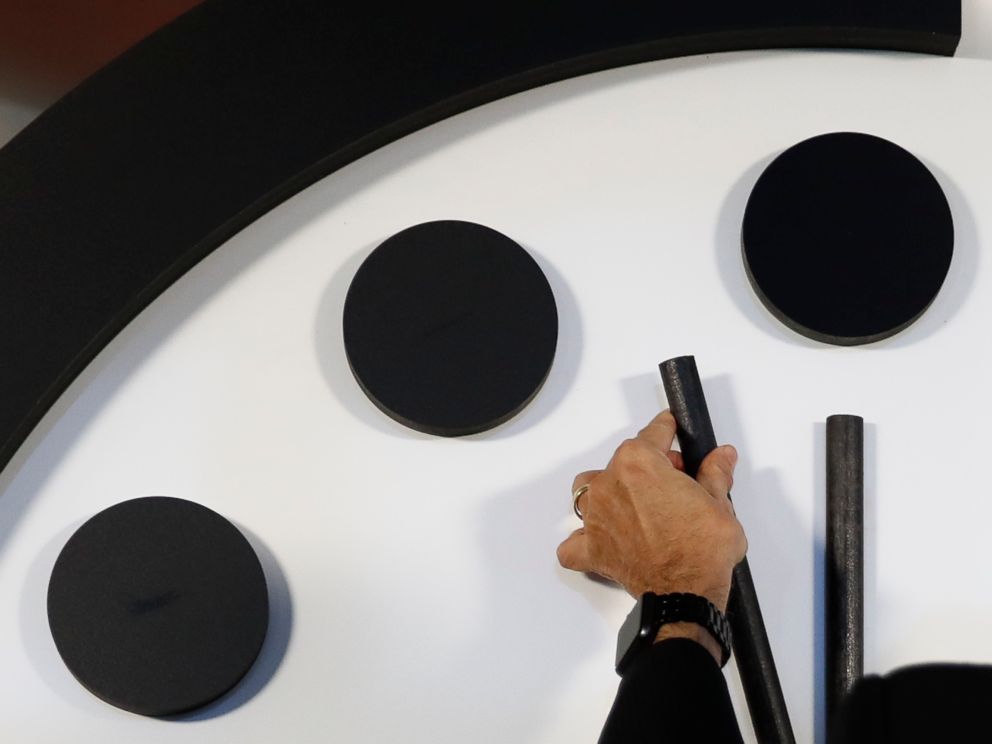'Doomsday Clock' ticks 30 seconds closer to midnight's apocalyptic destruction
The world is as close to ultimate doom as it has ever been, group says.
— -- The world is as close to apocalyptic destruction as it has ever been in the 71-year history of the symbolic "Doomsday Clock," the Bulletin of the Atomic Scientists said.
The Chicago-based nonprofit announced today the decision to advance its Doomsday Clock closer to midnight by 30 seconds. The clock is now two minutes to midnight, the symbolic hour of imminent doom.
The last time the symbolic clock edged that close to the end of humanity was in 1953, when the hydrogen bomb was first tested. The clock was as far away as 17 minutes from midnight in 1991, at the end of the Cold War when the United States and the Soviet Union were actively engaged in arms-control negotiations.
"This is the closest the clock has ever been to Doomsday, and as close as it was in 1953, at the height of the Cold War," Rachel Bronson, president and CEO of the Bulletin of the Atomic Scientists, said at a news conference today.
"To call the world's nuclear situation dire is to understate the danger and its immediacy," she added.


Last year, at the start of Donald Trump's presidency, the Bulletin of the Atomic Scientists moved the minute hand of the Doomsday Clock from three minutes, to two minutes and 30 seconds to midnight, reflecting "a darkening security landscape characterized by an increasing recklessness around nuclear rhetoric and increasing attacks on experts and expertise worldwide," according to Bronson.

This year, Bronson pointed to nuclear provocations from North Korea, nuclear exercises built into Russia's military plans and an enhanced commitment to nuclear weapons in Pakistan, India and China as reasons the Bulletin of the Atomic Scientists decided to further advance the Doomsday Clock.
The group also weighed the United States' response, specifically the exchange of provocative rhetoric between Trump and North Korean leader Kim Jong Un. An insufficient response to climate change, including the Trump administration's plan to withdraw from the Paris Agreement, was also a significant factor in the group's decision, Bronson said.
"We considered at length the lack of predictability in how the United States is thinking about the future and future use of its own nuclear weapons," she said. "An unpredictability that is embodied in statements and tweets by the president of the United States."





